Knowing what to pour down a snake hole is crucial for safety and environmental reasons. Proper substances can deter or remove potentially dangerous snakes from your property, reducing the risk of bites and harm to pets or family members.
However, using harmful chemicals can damage the ecosystem and endanger non-target wildlife. Researching and employing the correct materials preserves human safety and environmental health, striking a necessary balance in managing snake encounters. Let’s take a detailed look at what to pour down a snake hole?
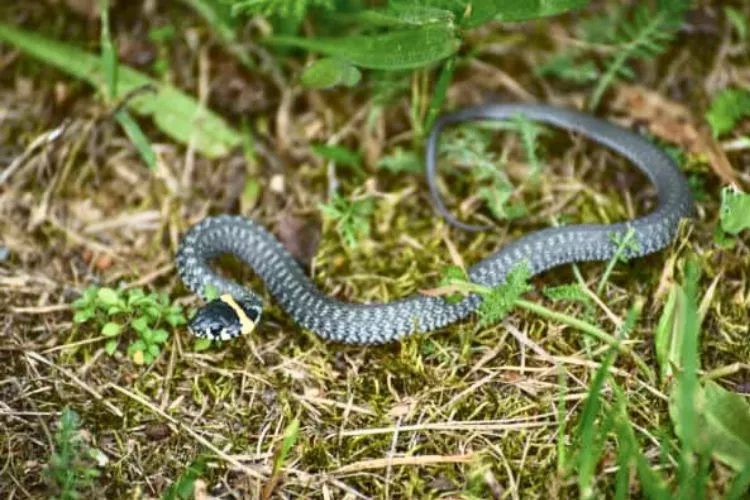
What to pour down a snake hole?
To encourage a snake to leave its hole without causing harm, one can utilize natural repellents that are non-toxic and environmentally friendly. A popular option is pouring water and essential oils into the snake hole, such as clove, cinnamon, or peppermint oil. These strong-smelling oils irritate the snake’s sensitive olfactory system, prompting them to relocate in search of a more comfortable habitat.
Another method is introducing a natural predator scent, such as fox or mongoose urine, available for purchase from specialized stores or online. By replicating the presence of a threat, this approach nudges the snake to move away for its safety.
When using these methods, it is essential to ensure that the concentrations of oils or predator scents are not too strong, as excessive amounts can harm the snake or other wildlife. Regularly monitoring the snake hole after applying these solutions will help determine their effectiveness and allow for necessary adjustments. Remember that the goal is to encourage the snake to leave peacefully, not to cause injury or distress.
1. Commercial Snake Repellents
Commercial snake repellents are any product that claims to repel snakes. These products can be found in many forms, including sprays, powders and granules. The most common active ingredient in commercial snake repellents is naphthalene (moth balls).
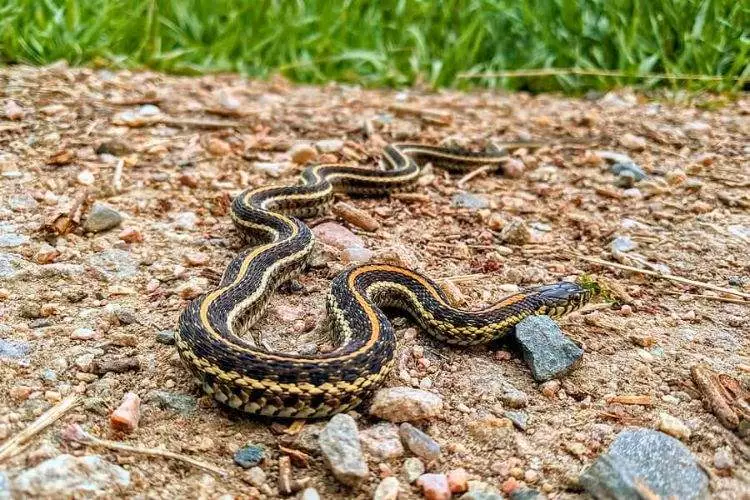
Naphthalene is an aromatic hydrocarbon used for centuries as a moth repellent because of its strong odor. When applied to the ground around your home or property, it creates a barrier of unpleasant smells that snakes find offensive and will avoid crossing into your yard or garden space. The downside of using naphthalene is that it’s toxic if ingested by humans or animals. So if you have pets or children who like to play outside with their toys near where you’ve applied this chemical spray/powder/granule formula onto the ground surface then there could be some risk involved here depending on how much exposure occurs over time between uses!
2. Natural Snake Repellents
Natural snake repellents can be used to deter snakes from entering your yard or home. They’re typically made with ingredients like garlic, hot peppers, or cayenne pepper and may also contain other ingredients such as vinegar and water. These repellents are sprayed on grassy areas where snakes like to hide or crawl through to keep them away from your property.
How do they work?
Snakes have small eyesight, so they rely heavily on their sense of smell when trying to find food sources. When you spray natural snake repellents around your yard, it masks the odor of prey animals for a short period, making it difficult for them to find food nearby (and therefore stay away). The effectiveness varies depending on what type of reptile you’re dealing with–some species are more sensitive than others–but overall these sprays not only repel but kill some types of snakes too!
3. Steel Wool
Steel wool is a fine, steel-based material that can be used as an effective snake repellent. The fine strands will get tangled in the snake’s body and cause it to become stuck. This method has been proven to work on copperheads and rattlesnakes, but there are some risks involved with using steel wool as a snake repellent:
Using too much steel wool at once could hurt yourself or others by causing an electrical fire. If you’re going to use this method of snake removal, make sure that all appliances are unplugged before trying it out!
4. Soil or Dirt
Soil or dirt is the most common snake repellent. It’s a great option because it’s cheap and easy to find, but some potential risks are involved with using soil as a snake repellent.
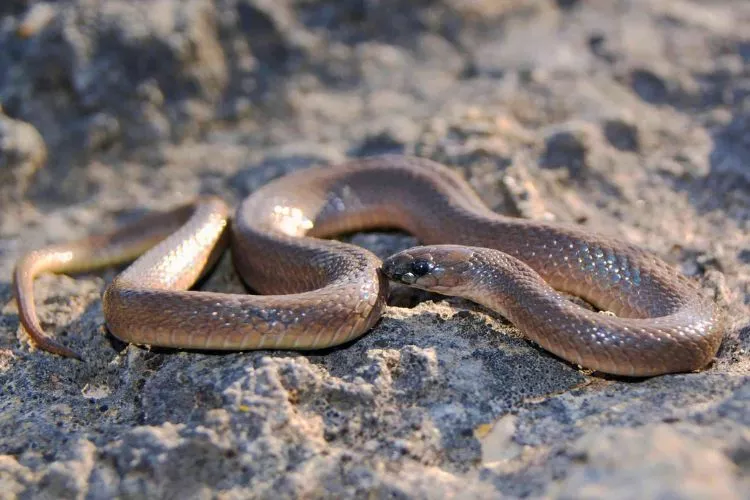
Soil contains minerals that can harm snakes if they ingest them while trying to eat your pet. Soils high in calcium may cause constipation and blockages in the digestive tract, while soils high in magnesium can irritate the lining of their stomachs. If you choose this method of snake control, make sure you don’t use any kind of fertilizer or composted manure–these products will only worsen matters!
5. Water
Water is a natural snake repellent. Snakes are cold-blooded, so they don’t like the feeling of being wet. If you pour water down any holes you think might be home to snakes, they’ll leave and go elsewhere.
Water can also be used effectively to keep your yard clear from other pests like rats or mice. If you have an aboveground pool or pond on your property and notice these pests coming around regularly, try using water as a deterrent instead!
Can you pour bleach down a snake hole?
Bleach is an effective way to kill a snake, but due to legal protection and other laws surrounding wild snakes, it may not be best to kill them at all. It may also be hazardous to approach a snake with a dangerous chemical to kill it. Instead, using the distinctive scent of bleach to ward off snakes may be a better idea to keep them away from the area.
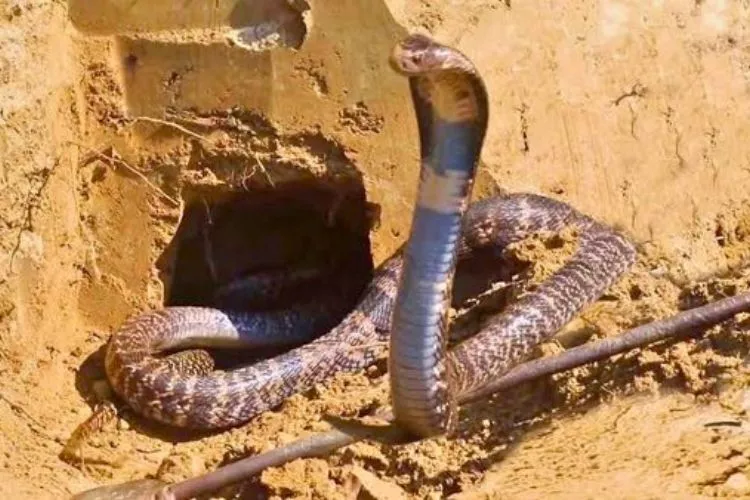
However, if there is a snake infestation in your yard, it’s best to contact exterminators or local wildlife services to remove them safely. Pouring bleach down a snake hole may not be an effective way to get rid of snakes as it can also cause harm to other wildlife and plants in the area. Instead, one can put compacted soil or stone down the snake hole after ensuring that there is no snake inside and push it down hard with the heel of your boot until the soil is as hard as the lawn in your backyard.
Can you pour gas down a snake hole?
Pouring gas down a snake hole is not a recommended or ethical method of dealing with snakes on your property. Firstly, gasoline is toxic and harmful to the environment, posing a risk to soil, water, and other organisms in the area. Introducing toxins to an ecosystem can have lasting negative effects on the balance of nature.
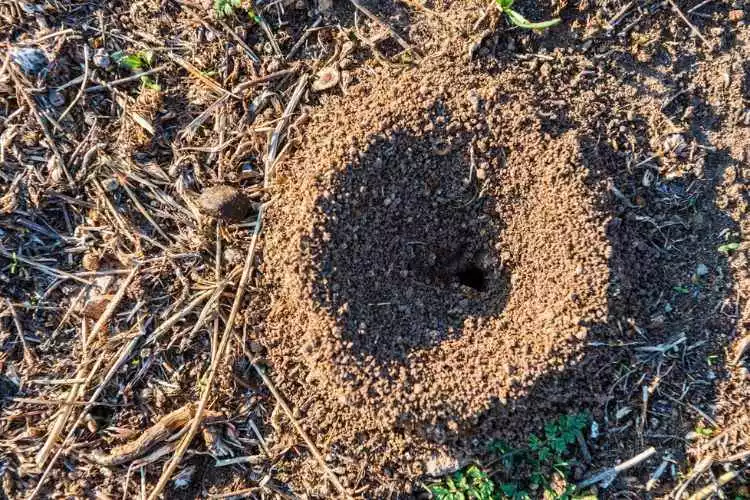
Secondly, this approach is inhumane and illegal in many jurisdictions. Snakes play a crucial role in controlling rodent populations and maintaining ecological balance. Killing them might lead to an increase in rodent-borne diseases and disruption of the food chain.
Instead of using harmful methods, try non-lethal, humane approaches to addressing snake issues. These include habitat modification, such as removing piles of debris, sealing entry points in buildings, and maintaining a clean yard. If you encounter a venomous or dangerous snake, contact a professional wildlife removal service to handle the situation safely and humanely.
Will Epsom salt get rid of snakes?
There is no evidence to suggest that Epsom salt can effectively repel or eliminate snakes. Epsom salt is a magnesium sulfate compound commonly used for its therapeutic benefits, such as reducing inflammation and muscle soreness. While some claim that Epsom salt can repel snakes due to its strong odor, no scientific evidence supports this claim.
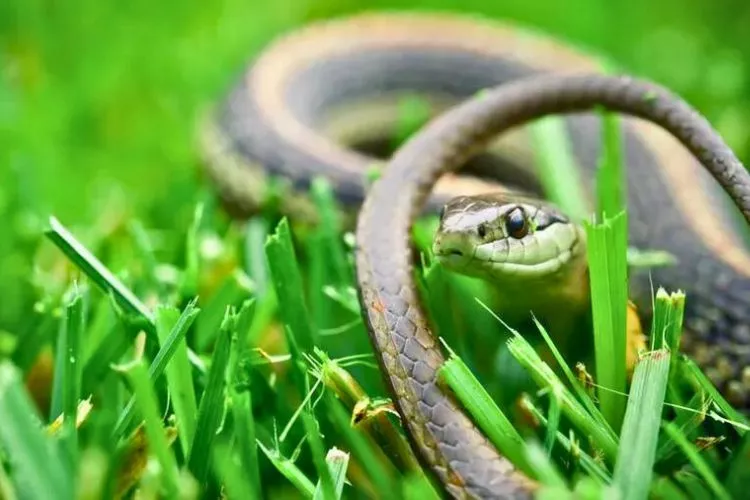
Moreover, using Epsom salt to eliminate snakes can harm the environment and other organisms in the area. Introducing foreign substances into an ecosystem can have lasting negative effects on the balance of nature and potentially harm other wildlife, pets, and humans in the area.
If you are experiencing snake issues on your property, it is important to seek the help of a professional wildlife removal service. These experts can safely and humanely remove snakes from your property, and provide recommendations for preventing future snake encounters.
What does white vinegar do to snakes?
No scientific evidence suggests that white vinegar can effectively repel or get rid of snakes. While white vinegar can be a useful household cleaning agent and has some disinfecting properties, it is unlikely to significantly affect snakes.
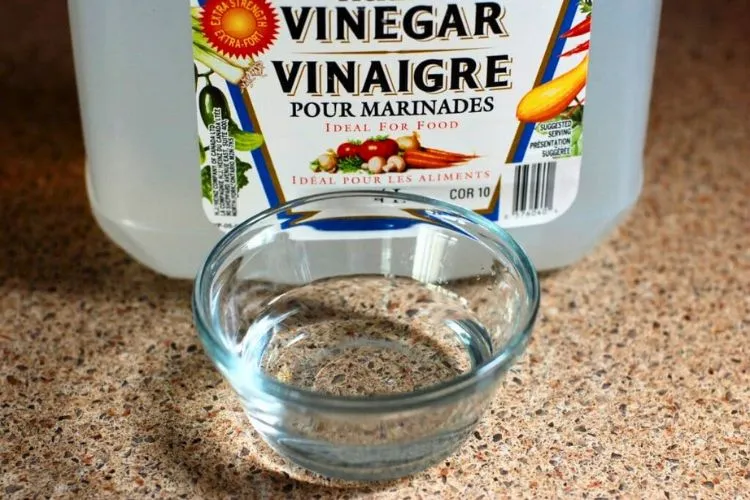
Some people claim that the strong odor of white vinegar can repel snakes, but this claim is not supported by scientific research. Moreover, using vinegar to eliminate snakes can harm the environment and other organisms in the area. Introducing foreign substances into an ecosystem can have lasting negative effects on the balance of nature and potentially harm other wildlife, pets, and humans in the area.
If you are experiencing snake issues on your property, it is important to seek the help of a professional wildlife removal service. These experts can safely and humanely remove snakes from your property, and provide recommendations for preventing future snake encounters.
What smell do snakes hate?
According to Pest Pointers, there are several smells that snakes may dislike, including sulfur, mothballs, cayenne pepper, cinnamon oil, and clove oil among others. However, it is essential to note that snakes are very sensitive to their surroundings and may avoid certain scents for different reasons. For instance, the smell of predator urine or danger may cause snakes to avoid an area. Some odors may also be too strong for a snake’s sensitive olfactory system and may overwhelm them.
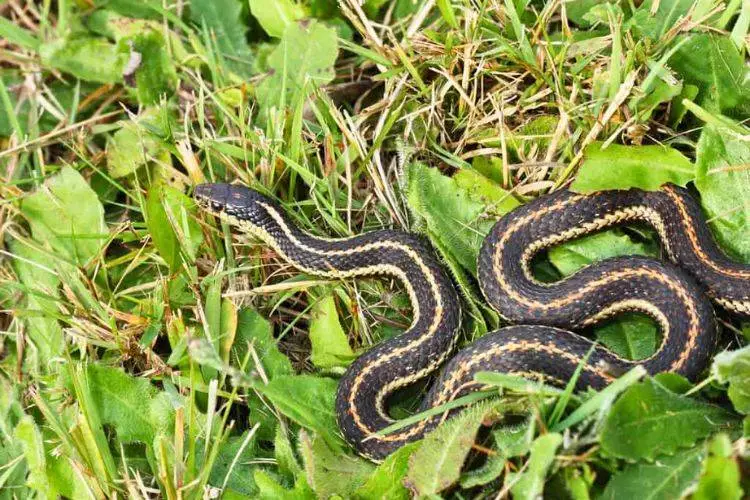
It’s important to note that although certain smells may deter snakes, there is no guaranteed solution to keep them away. The best way to keep snakes out of an area is through exclusion methods like sealing gaps and cracks around homes, removing debris, and keeping the area clean. If you encounter a snake in your home or yard, it is recommended to contact a professional snake removal service for safe and humane removal.
Other Articles You May Find Useful: Killing Moles with Marshmallows | How To Get Whipworms Out of The Yard
Conclusion:
Various substances are believed to deter snakes, it is crucial to prioritize the safety of both the environment and the snakes themselves. Pouring chemicals or other substances down a snake hole may be ineffective and harmful to the surrounding ecosystem. Instead, consider implementing preventive measures and maintaining a clean property to discourage snakes from taking up residence. If a snake problem persists, seek the assistance of a professional wildlife removal service to ensure proper and humane handling of the situation.
